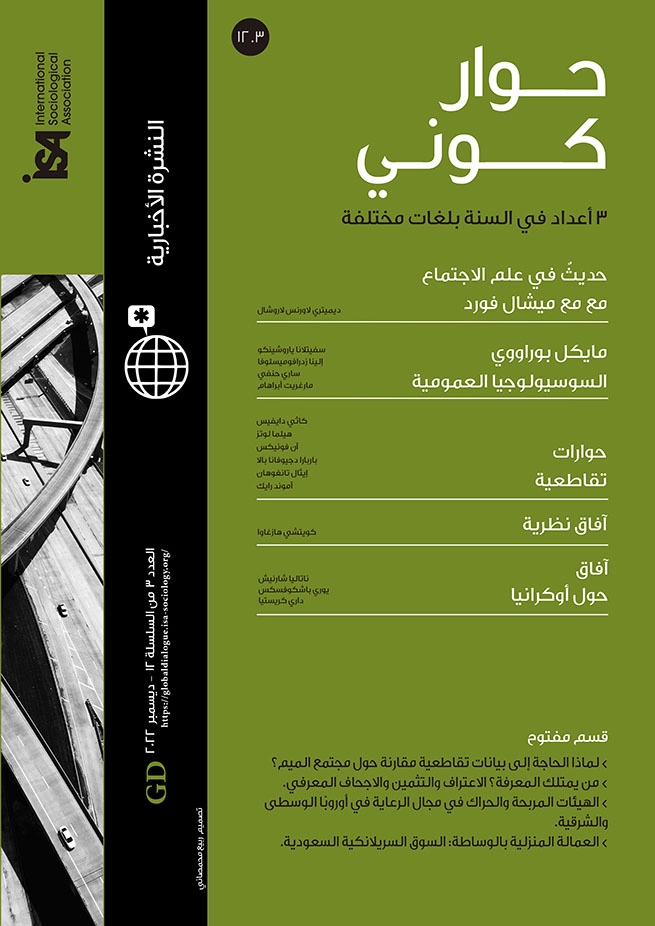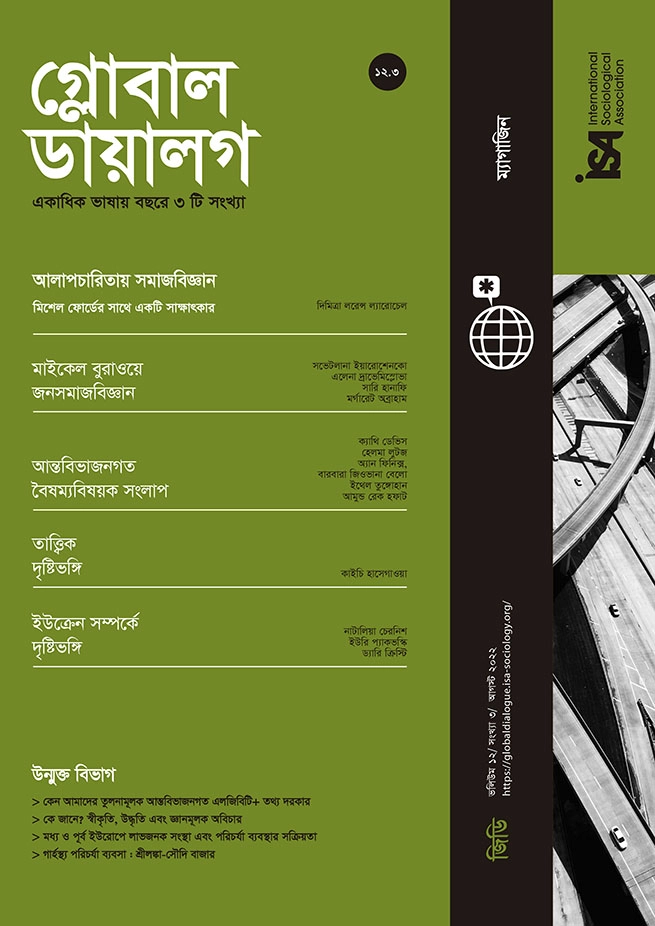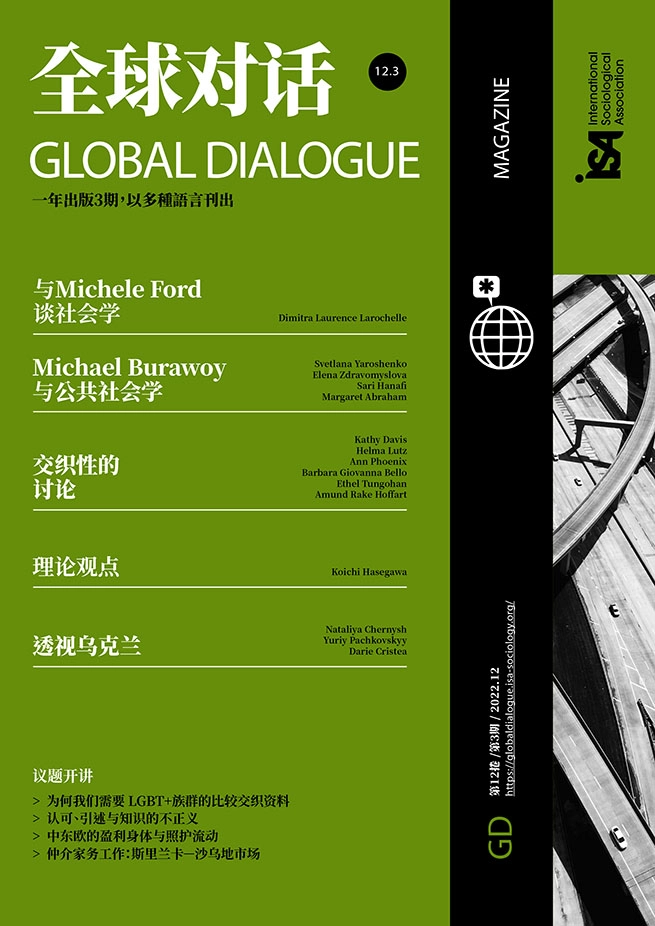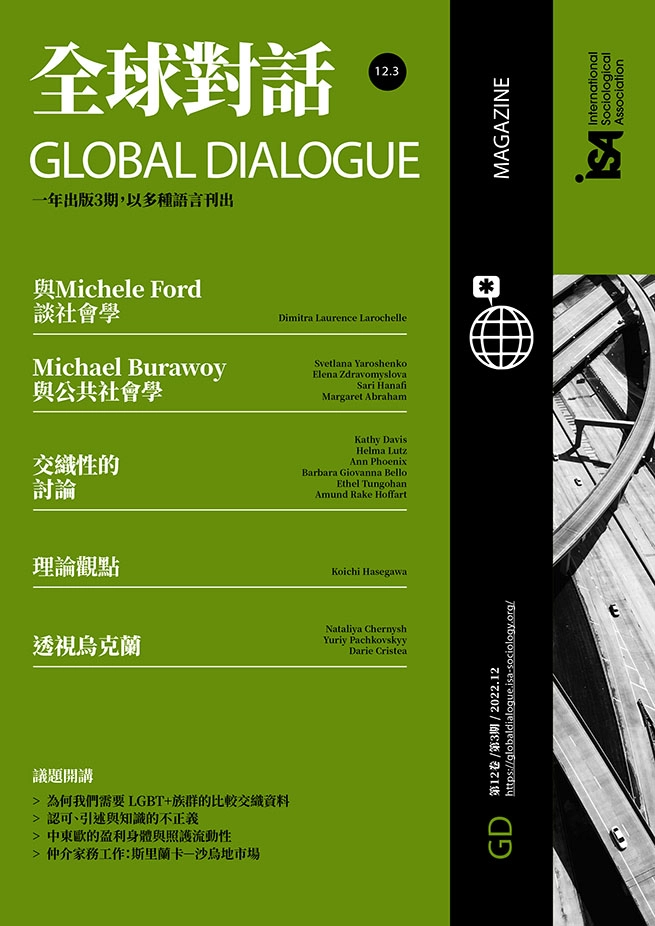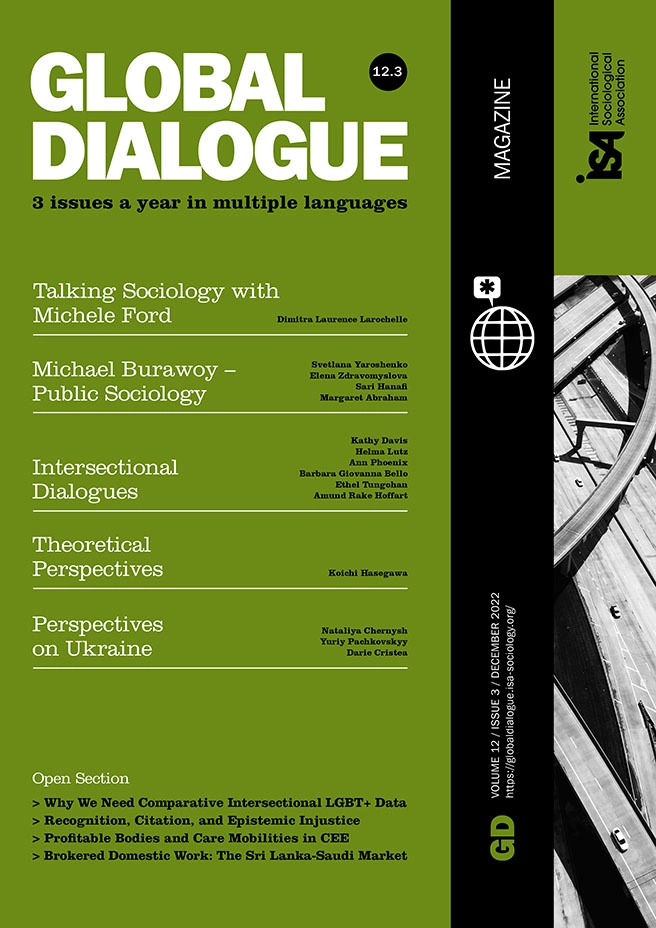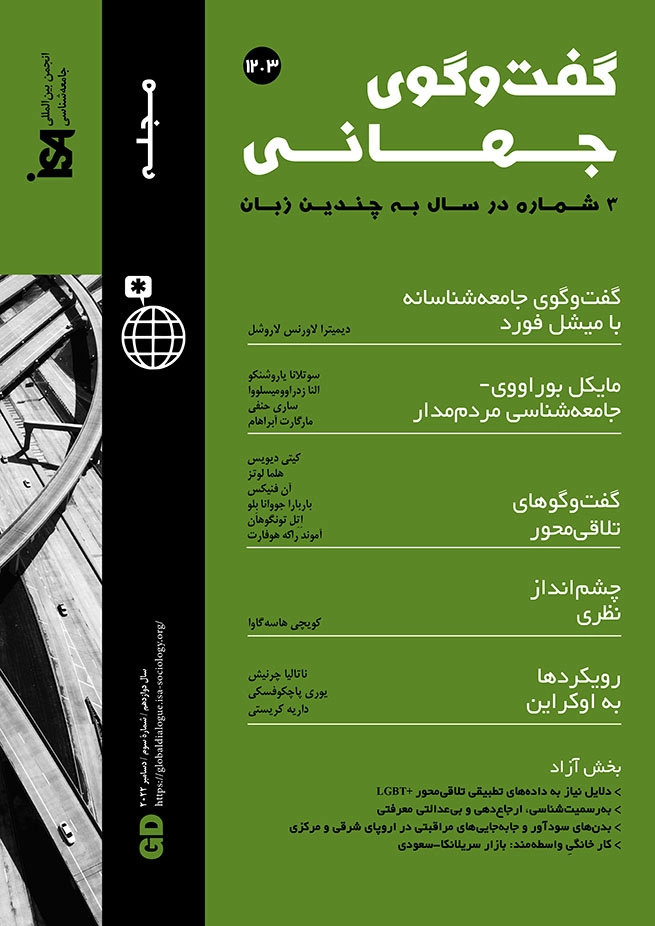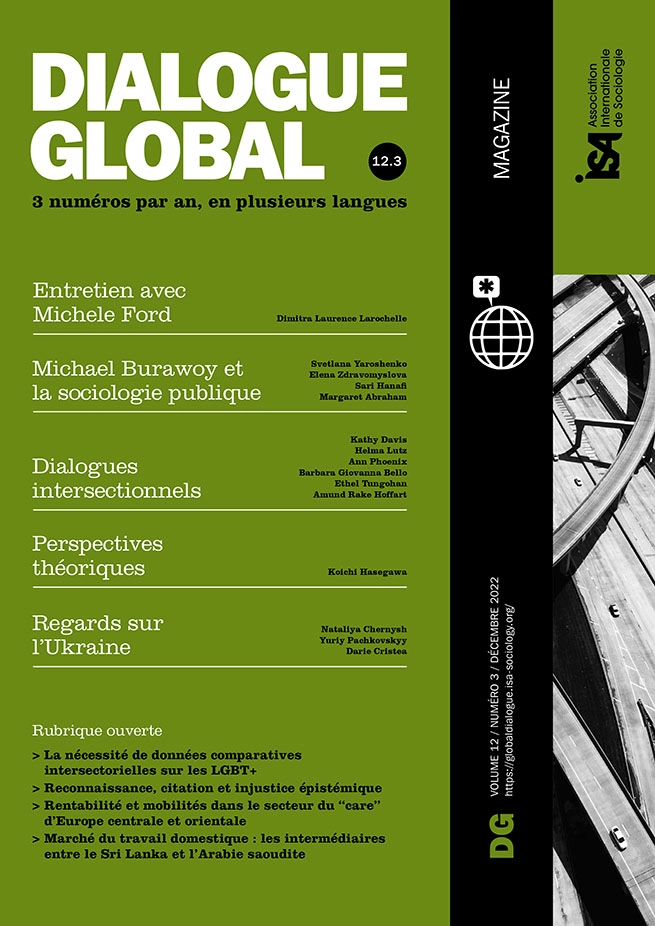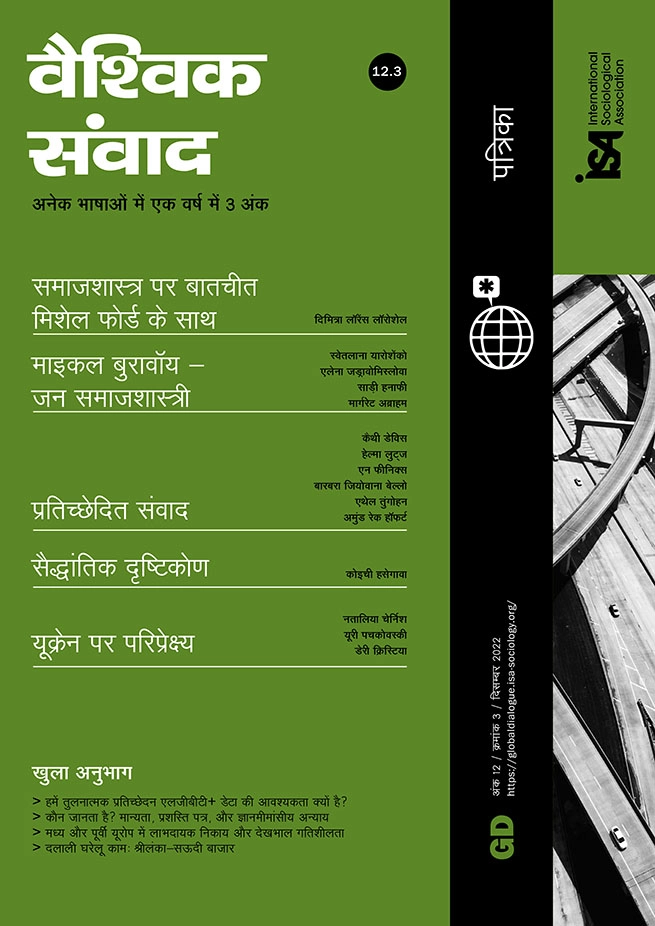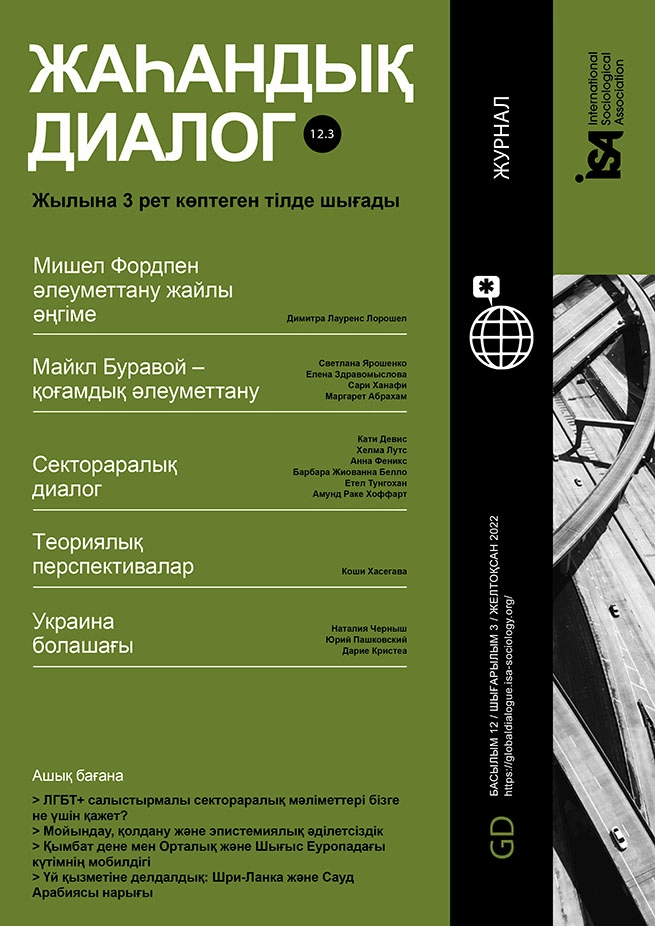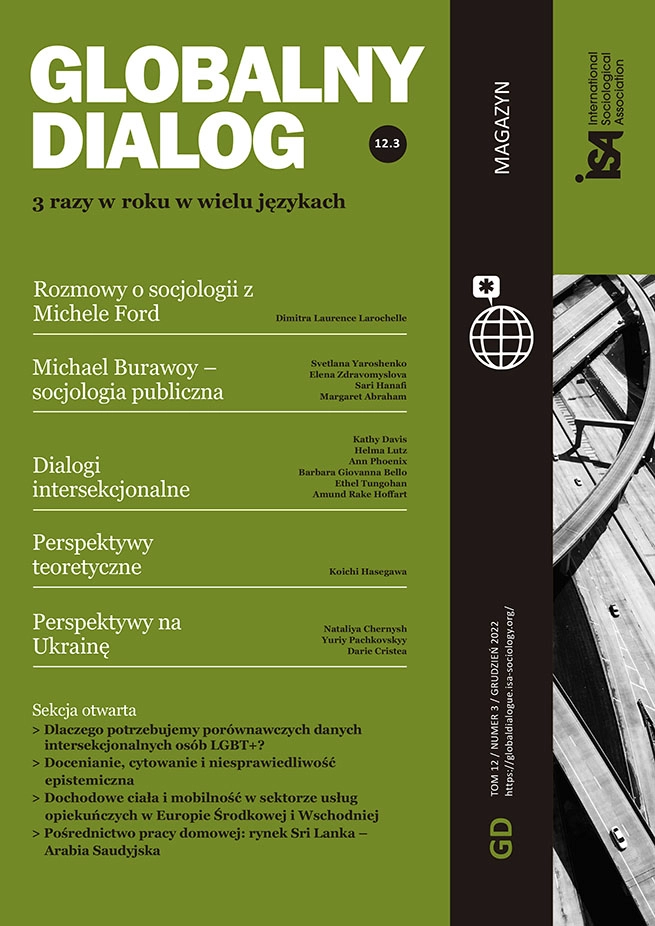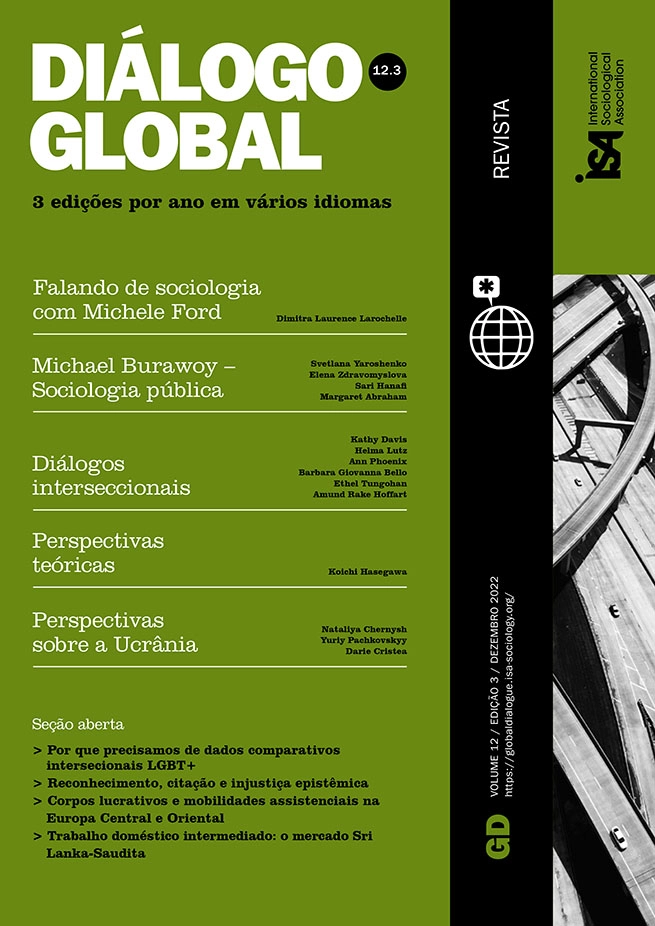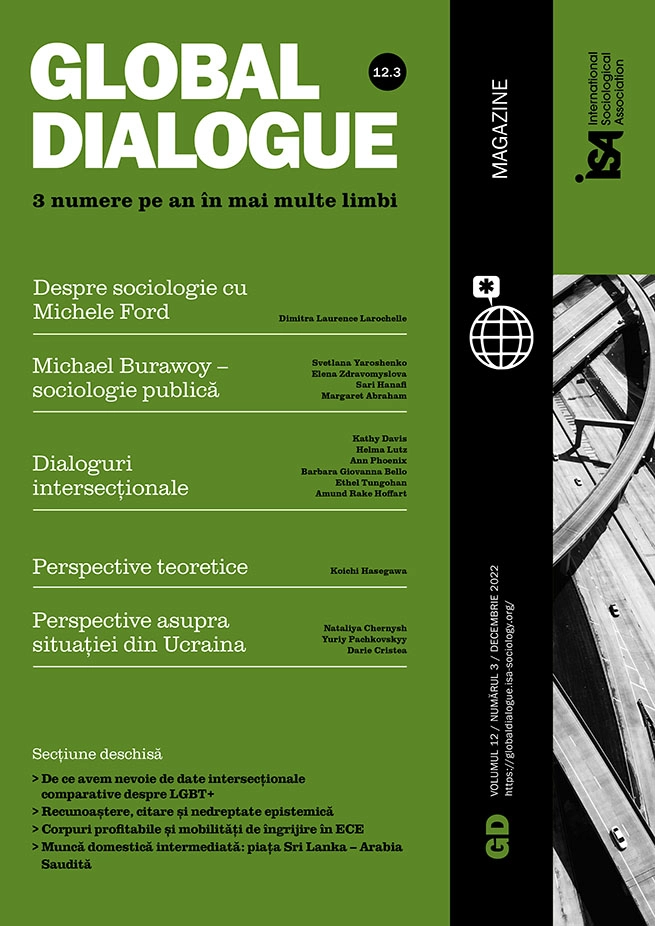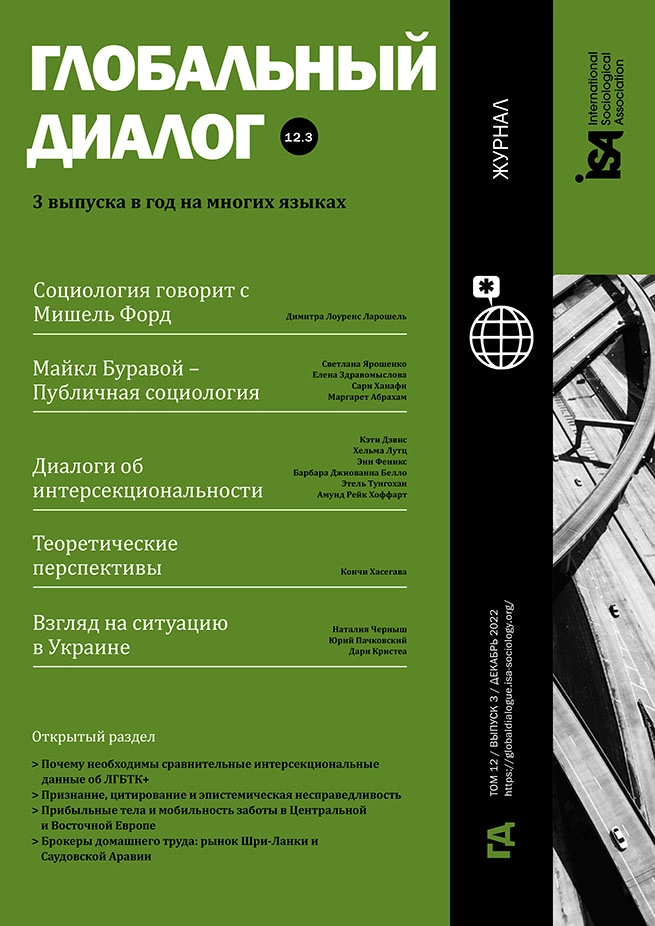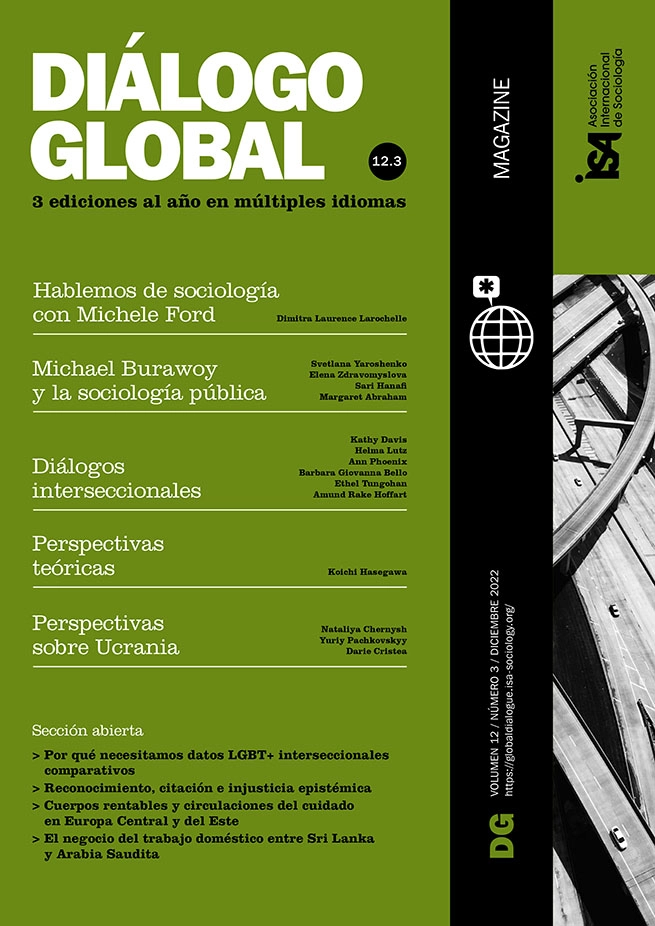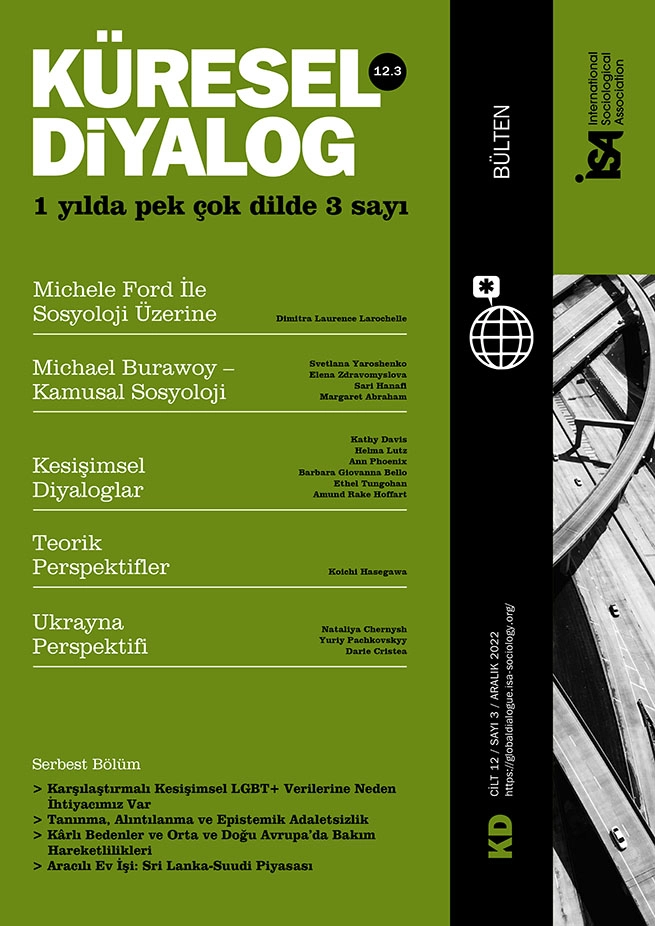Read more about Michael Burawoy – Public Sociology
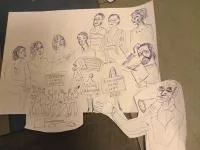
Public Sociology in the Russian Context
by Svetlana Yaroshenko and Elena Zdravomyslova
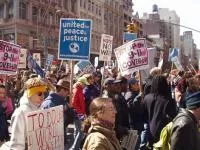
Reflecting on Michael Burawoy and Public Sociology
by Margaret Abraham
October 05, 2022
Michael Burawoy is not simply a social theorist who feeds sociology with many theoretical insights into labor sociology and political economy, he actually reshapes the practice of sociology across the world. When I started reading Public Sociology: Between Utopia and Anti-Utopia, I could not put it down until I had read the last page. Read as a novel, the book turns the last half century of Burawoy’s trajectory into an object of analysis, while putting forward his arguments in favor of public sociology. By bringing Erik Olin Wright’s project into line with his public sociology, Burawoy sees this sociology as moral or normative science standing for certain values that might be realized (the utopian side) and how their realization is obstructed (the anti-utopian side).
Burawoy theorizes public sociology by making it organic and generative of a real utopia that is committed to civil sociology. I cannot but agree with him, but here, in this brief article, I want to push not only for cutting-edge criticism of the oppressors but to envisage the possibility of dialoguing with them. My justifications for what I call “dialogical sociology” come from my area of academic intervention and location. My subfields in sociology (knowledge, culture, religion, and politics) are quite different from Burawoy’s labor and (critical) Marxist fields. He antagonizes neoliberal capitalists and actors in third-wave marketization. I grew up and still live in the Middle East: a region afflicted with long-standing brutalizing authoritarian and colonial regimes where torture, political kidnapping, assassination, and dispossession are very common. How would one deal with a situation where the authoritarian regimes have created cultural hegemony and ideologically brainwashed a large section of the people into believing in the virtue of authoritarianism to bring stability? How would one deal with the Arab–Israeli conflict when some Israelis, siblings of Holocaust survivors, become colonial settlers who confiscate the land of Palestinians? Can we have historical, restorative justice without the broader pluralistic mechanisms of transitional justice?
Because of his sensitivity to dominated people and their suffering, Michael Burawoy has often insisted that the task of sociology is to stand with civil society against both state and market domination. This is absolutely crucial, but I would add to this task another two.
The first is to extend the sociological mission beyond civil society, to the civil sphere in the sense this is given by Jeffrey Alexander. Alexander reminds us that civil society is only one sphere among others within a broader social system, into which the family, religious groups, scientific and corporate associations, and geographically bounded regional communities should be incorporated, as they all produce goods and organize their social relations according to different ideals and constraints. This extension of our mission is very important if we are to keep seeing ourselves as guardians of this civil sphere and of liberal democratic ideals.
The second task is to mediate with different noncivil spheres: to engage in dialogue with them. We need to listen attentively to those who refuse to embrace, partially or totally, the ideals we aim to further. To his credit, Burawoy feels the importance of this when he praises Arlie Russell Hochschild’s Strangers in their Own Land: Anger and Mourning on the American Right and how she jumps the “empathy wall” with Tea Party supporters in Louisiana. They turned into Trump supporters, expressing their discontent vis-a-vis globalization and their vision of social inequalities. Before judging them, let us listen, for example, to those who fear Syrian and African migrants coming to Europe. With our normative methods, presuppositions, and explicit commitments, I would like here to emphasize our capacity to dialogue and mediate with noncivil spheres. Against a radical critical social theory, I call for a situated critical one. One that, while criticizing power, is also able simultaneously to open up dialogue with the very forces it critiques. This is a way for sociology, while it espouses the comprehensive/classical liberal project, to accommodate (an enhanced and amended version of) Rawls’s political liberalism; i.e. to work out the pluralism (pluralistic conceptions of the good) in our society that combines all sorts of diversity with social cohesion (a unified conception of justice) within society.
More broadly, to me – and I am sure Burawoy would join me on this – the issue of public sociology is not simply about rational claims, or about normative argumentations debated in the public sphere, it is also about emotion: how to understand the emotions of the other, moral sensitivity, the moral enervation of the other, sometimes making them blind to social suffering. This dialogical sociology is sensitive not only to how people ethically justify their actions, but also to how sociologists could take this suffering seriously and approach it, to put it in the words of Silvia Cataldi, as a hermeneutics of presence.
As for talk of morals, in the Arab region, where we have immense religiosity, religion is one of the sources of morality. This is the massive elephant in the room that is deliberately or unconsciously unseen in sociology literature, except when related to political violence. This is not only the case in the Arab world, the Middle East, Israel; religion is also becoming more and more important in Latin America (e.g., the new Pentecostalism in Brazil) and beyond. So, I think that as sociologists we need to be modest and to think about how to acknowledge that there are different elite formations in our society, which include religious people who have been ignored or despised for so long, dubbed as backward and reactionary by anti-clericalist social scientists.
Finally, Burawoy’s autobiography/deep analytical book straightforwardly states that one of the tasks for sociology today is to advance utopian visions; not an easy task in times when the idea of socialism has been discredited. For Burawoy, people become sociologists “not to become rich but to make a better world, [...] more equal, more free, more cooperative” (p. 2). Burawoy has not only made the world better by his thought, but also through his practice: being so generous when taking care of his students and the broader scientific community. I owe him a lot as he has held my hand while my sociology has shifted not from professional and policy sociology to public sociology, but from a sociology that is mapped out by local and regional problems to a sociology that embraces global issues. Moreover, he encouraged me to stand for election onto the ISA executive committee, as vice-president for national associations and as President of this association.
Sari Hanafi, American University of Beirut, Lebanon, and ISA President (2018-23) <sh41@aub.edu.lb>
This issue is not available yet in this language.
Request to be notified when the issue is available in your language.
If you prefer, you can access previous issues available in your language:
